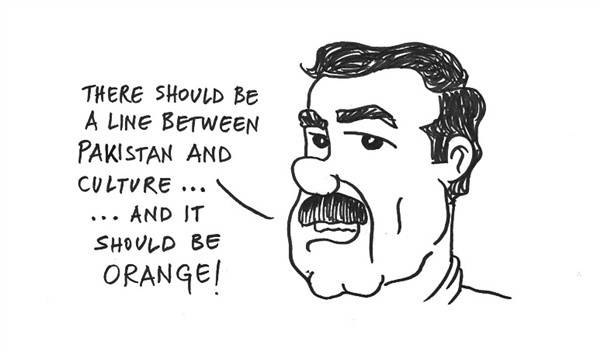
Cleaning up
Sir,
It is time the Pakistani state and its political, civil and security establishment each reassess their own role and shortcomings in securing this country, its sovereignty, providing justice, equal rights and welfare, which was the motivation and promise by Jinnah for the creation of Pakistan. The father of the nation was very clear that there can be no conflicts of interest for those holding public office, when he refused Lord Mountbatten to become Governor General for an interim period after 1947. There are some fundamental anomalies with our basics, which need to be rectified if this country is to survive as a sovereign independent nation, whose institutions, political parties and individuals at the helm are there to serve the people, obey its laws and respect its constitution.
How can you expect an individual who has recently pledged an oath of loyalty to another country, thereby revoking all previous loyalties, be eligible to lead political parties, hold public offices, get diplomatic assignments and serve this country, whose citizenship they are not proud to hold, nor consider Pakistan worthy for themselves or their families to live in. It is the most recent oath of citizenship that you have taken which matters.
Pakistan has suffered a lot because of this farce of dual nationality, where numerous opportunists have reduced this country to a convenient financial transit stopover to hold power, do business, evade taxes and then abandon this country. Pakistan cannot hold anybody accountable for acts of treason, massive corruption or other crimes, if the person holds an American or British nationality. Other than Afghanistan and Pakistan, which are both unstable, both victims of terrorism, no other country in this region, including India, allows its citizens with split loyalties to hold any public or elected office, nor any other sensitive assignments.
Malik Tariq Ali,
Lahore.
Heritage
Sir,
Money can buy anything on earth, but it cannot bring back our past, our glory; with money we can build new cities, dams, bridges, roads and much more, but we by all means cannot construct the Badshai Mosque or Shalamar Gardens or any such heritage site that are the real treasures of the county. The citizens of Lahore who are proud of their centuries old historical monuments are in a state of shock as to why the government of Punjab is adamant on its project of Orange Train when even UNESCO’s World Heritage Committee has urged the Punjab government to immediately suspend any further work on the Orange Line Metro Train along the Shalimar Garden. The honorable Lahore High Court also in its historical verdict has ordered to stop the ongoing work on this project near eleven heritage sites. The civil society and residents had since long been requesting the Government of Punjab to save the historical buildings of Lahore, but the billion-dollar project kept on moving, neglecting the disastrous effects on the heritage sites of Lahore.
It’s hoped that the government of Punjab will reconsider their plan of running an orange train and instead of destroying the heritage and historical monuments of Lahore, will dedicate those billions of Rupees towards the welfare of the people of Punjab, in the form of building hospitals, schools and roads in downtrodden areas of Lahore.
Aamir Aqil,
Lahore.
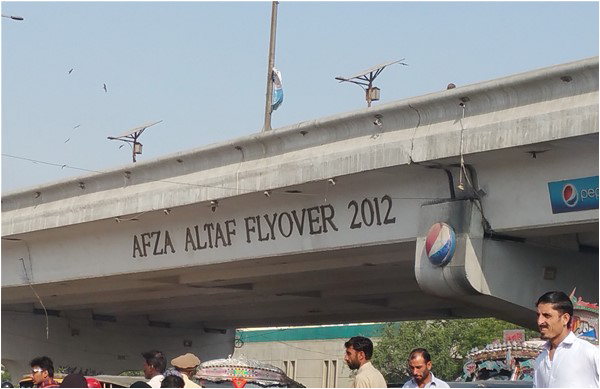
Narcissism
Sir,
Spending public funds for private publicity is not just unethical but also unlawful. The disease is hugely prevalent in countries where ethics and accountability are never seriously questioned. Dr AQ Khan is recognised for his role in the field of nuclear science, but few are aware of his pioneering contribution to the science of narcissism. Over 30 laboratories, schools, hospitals, playgrounds and markets were named after him before he unceremoniously disappeared into oblivion. GIK Engineering University, the Chaudhry Pervaiz Elahi Institute of Cardiology Multan and Nawaz Sharif Kidney Hospital Swat are just a few examples of the misuse of taxpayers’ money for personal glorification. The number of structures and schemes named after Benazir Bhutto would call for the services of a professional accountant.
Often these ‘publicity-at-state-expense’ projects become questionable and discreditable when the individuals concerned retire or fall from grace for any reason. Consider the flyover in the SITE area of Karachi, built by the Sindh Government at a cost of Rs 547 million. Planned to be named as ‘Habib Bank Flyover’, the audience was left in a daze when the Sindh Governor re-baptised the bridge as Afza Altaf Flyover at its inaugural ceremony. The sole idea of naming the bridge after Altaf Hussain’s daughter was to seek appeasement and show loyalty to someone who was well known to be seriously involved in militancy and anti-state activities.
The AA Flyover is a monument to political sycophancy and the silence of an enslaved ‘civil society’. The bridge ought to be de-baptised and reverted to its originally planned name. Why are buildings, institutes and bridges named after those who never contributed a single penny of their own - and possibly siphoned many millions from the contracts and construction of these buildings. The self-aggrandising tradition of public structures and institutions being named after politicians or government servants, especially in their own lifetime and while they are still on active duty, must be formally brought to end by an act of Parliament.
Naeem Sadiq,
Karachi.
Altaf Crosses Red Line
Sir,
This is reference to Altaf’s unacceptable anti Pakistan remarks made in his speech addressing his party loyalists, inciting them to violence and revolt. The Federal Government and establishment is well aware that as British national he enjoys immunity from prosecution and punishment under laws of Pakistan. The state has failed numerous times to punish people who have sought political asylum, although they held Pakistani passport. If state sovereignty and national interest were supreme there is only one way this country can prevent such internal turmoil and interference from across our borders through individuals who run political parties, or head religious cult like groups, while sitting securely in foreign countries whose passports they hold and whose interest they are bound by law and oath of citizenship to serve. It is to ban any individual holding foreign passports to head any political party or group engaged in political activity. The question is will petty self interest prevail over national security interests?
Aneela Chandio,
Sukkur.
Transgression
Sir,
During the course of the debate on Kalabagh Dam, its opponents are repeatedly referring to resolutions by three provincial assemblies against this development project. In this regard it may be mentioned that provincial assemblies are not authorized to make decisions or suggestions about federal matters. In view of this position these assemblies transgressed their limits and disregarded jurisdiction of the Senate and the National Assembly. Such behavior is not in the interest of Pakistan’s federal political system.
Taraq Jazy,
Islamabad.
New shells
Sir,
According to media reports, the Indian government has decided to replace pellet guns being used against the peaceful Kashmiri protesters, with newly developed PAVA shells, a chilli-based munition that temporarily incapacitates the target.
I am reminded of history by reading this piece of news. India’s first war of independence was fought against the British East Indian Company from May 1857 to July 1859. One of the major causes of that revolt was the ammunition for new refiles. The pre-greased paper cartridges were used in those rifles. The grease used in the cartridges was rumoured to include tallow derived from beef, which would be offensive to Hindus, and pork, which would be offensive to Muslims.
The Kashmir freedom movement has been fighting since the partition of India in 1947. The armed rebellion against Indian rule began in 1989. More than 70,000 people have died fighting and thousands disappeared after they were taken away by security forces. The latest separatist movement in Kashmir valley has reached its peak. The brave people of Kashmir are boldly facing the atrocities of Indian forces. They want to get their right of self-determination and freedom from the unjustified Indian rule. The bullets, guns, shells, beaten charges or any other tact of Indian forces cannot stop the freedom wave in Kashmir.
Mansoor Ahmed,
Sheikhupura.
Social problem
Sir,
It is sad to see that the people of our country have been facing unending problems in their daily lives; the government has more or less failed to bring any improvement in the lives of its citizens. The government has not learned from the mistakes of the past and is again repeating them. Citizens have been plagued with some major problems such as terrorism and poverty. Due to these problems, the life of an average person has become all too hard in this country. As we can observe from our surroundings, with each passing day the situation is going from bad to worst, because of poverty and terrorism attacks. Almost 60 million people are living below the poverty line. 60% of the country’s population is living below the poverty line, in which people are not getting their basic necessities of life such as cloth, shelter, food, education and medication. I would like to request the government, NGOs and other social workers to search for a solution to these problems.
Sajjad Khan,
Kech.
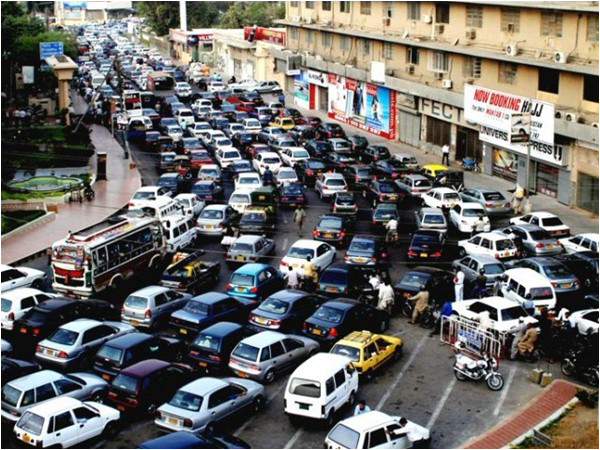
Traffic mania
Sir,
With the increasing population in Turbat, the traffic seems to be getting more and more problematic with each passing day. People from rural areas are increasingly settling in Turbat with the hope of having good facilities and a better quality of life. As a result of this, traffic in the area is increasing and the number of traffic accidents has dramatically increased as well. It was estimated that each year, more than eight hundred accidents occur in Turbat, and nearly one hundred people die as a result. Beside this, smoke belching vehicles are making the environment dirty and affecting a majority of people. Due to this, the public is suffering from all types of health issues. The government is refusing to make any effort to resolve traffic jams and other traffic problems. It is the responsibility of traffic police to play their role in helping the populace of Turbat cope with this increasingly annoying problem.
Sana Samad,
Turbat.
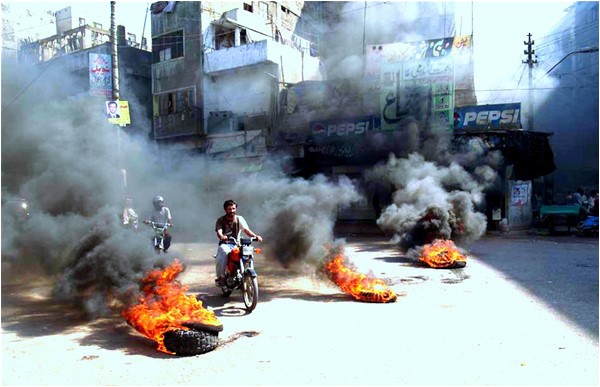
Violent politics
Sir,
Once again, MQM chief Altaf Hussain has remarked and chanted anti-Pakistan slogans, delivering a provocative speech that led to attacks on TV channels in Karachi. Using uncivilized language and raising slogans against Pakistan by Altaf Hussain showed that he was not a normal person. This is not the first time such a thing has happened. In 1994-95, during my FSc in Government College Hyderabad, I had keenly observed the politics of MQM. In those days, a famous slogan was written on walls, “Quaid ka jo gadar ha mout ka wo haqdar ha.” Altaf Hussain and his party spread the politics of violence and hate based on ethnicity in urban areas of Sindh. On different occasions, the people of Sindh faced ethnic conflicts between Urdu speaking and others. He is also the first politician of Pakistan who promoted the gun and bullet culture in politics. As a result, thousands of innocents have been killed in different incidents.
Karachi is an economic hub of Pakistan. Unfortunately, for many decades, due to this politics of violence and unrest, foreign investors have stopped investing inside the country. The ongoing operation by Pakistan Rangers against terrorists, criminals and target killers is bringing back peace and stability in the city. Local businessmen and people from different walks of life have appreciated the bold steps taken by Rangers.
Mansoor Ahmed,
Faisalabad.
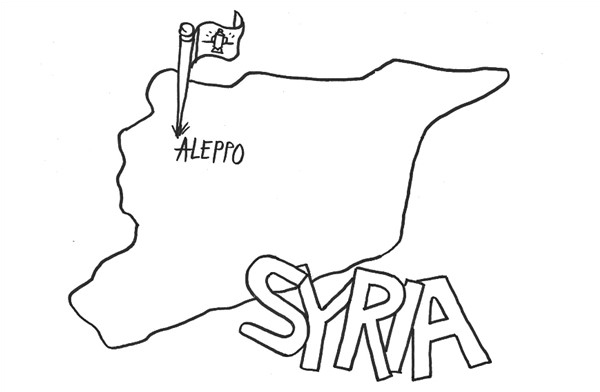
Syrian conflict
Sir,
Aleppo, once Syria’s industrial and economic hub before the war, has emerged as the civil war latest high-stakes battlefields as the warring parties pour in all of their military might to try to strike a definitive blow against their opponents. In the first year of the revolution Aleppo saw neither the large-scale protests nor the deadly violence that shook other towns and cities. However, it suddenly became a key battleground in July 2012, when rebel fighters launched an offensive to oust government forces and gain control over northern Syria. Aleppo has been divided since then between the government and the rebels. With the Assad government holding the west while rebels controlling districts in the east and much of the surrounding countryside of Aleppo governate. Even some parts of the city changing hands on a daily basis now. According to the International Committee of the Red Cross the battle of Aleppo is one of the most devastating urban conflicts in modern times. There has been massive damage to the city’s basic infrastructure. With water and electricity supplies cut or severely reduced, the population is at risk from untreated and unsafe water. Humanitarian organizations have begun trucking drinking water as an emergency measure.
Recently, Assad’s regime tightened the siege around Aleppo to force the rebel fighters to surrender, but the rebels hit back and broke the siege. But one vital question arises that why Aleppo has become so crucial for both the Syrian regime and the opposition. As Aleppo used to be the largest city in Syria, its recapturing for the President Assad regime would be of a military and psychological significance; liberating this particular city would be a boost to the Syrian government’s popular legitimacy. On the other hand, Aleppo is the last major urban holding of the mainstream armed opposition in Syria. If the political process is to amount to anything other than a regime victory in all but name, the rebels have to hold Aleppo City. Both sides are throwing everything they can at the four-year battle for the city, a fight that has come to define the Syrian civil war, because each believes the fate of Aleppo will decide the outcome of the conflict. The Syrian government has organised a good number of forces thorough the participation of its own regular Syrian Arab army, Hezbollah and Shia militias; it should not be forgotten that these forces are also supported by Russian airpower. On the other hand, rebels have also mobilised a number of groups including the Free Syrian Army, Jaysh al-Fateh, Jabhat Fateh al-Sham formerly Jabhat al-Nusra and Ahrar al-Sham.
Like the opposition, President Bashar and his inner circle are convinced that taking Aleppo will effectively end the civil war, breaking the morale of the opposition and condemning it to a marginal existence as a rural insurgency that can no longer claim to represent the large sections of Syrian society. By bringing all of the country’s major cities under his control will also remove the threat that Assad’s international critics could push, as they once did, for a new Syrian settlement that does not include him as leader. Moderate members of Syria’s opposition argue that they fear not just for the people of Aleppo, but for the state of their wider cause that is Syrian revolution and believe the siege aimed not just to force the rebel fighters to surrender but also to polarise further a war that Assad has always cast as a battle between himself and extremists and jihadist.
Manish Rai,
New Delhi.

